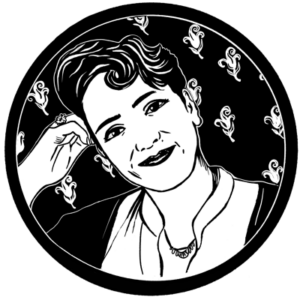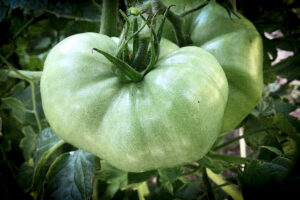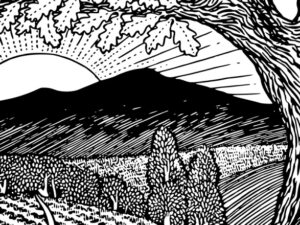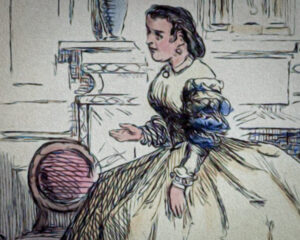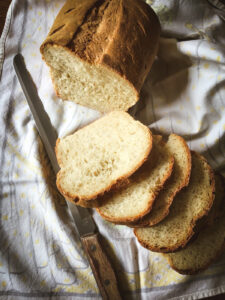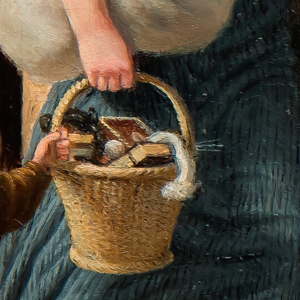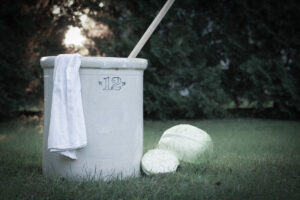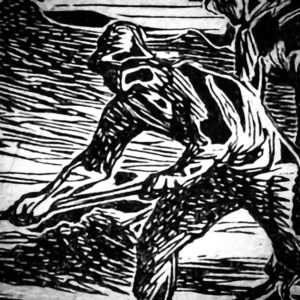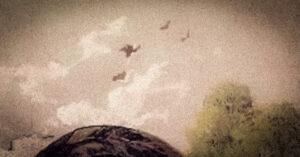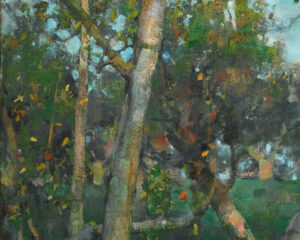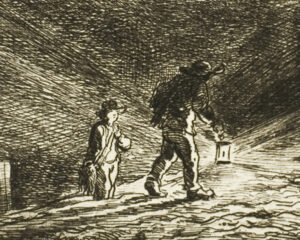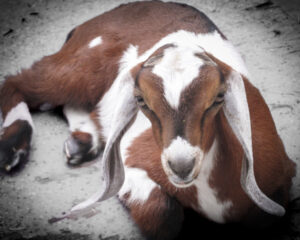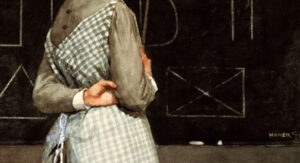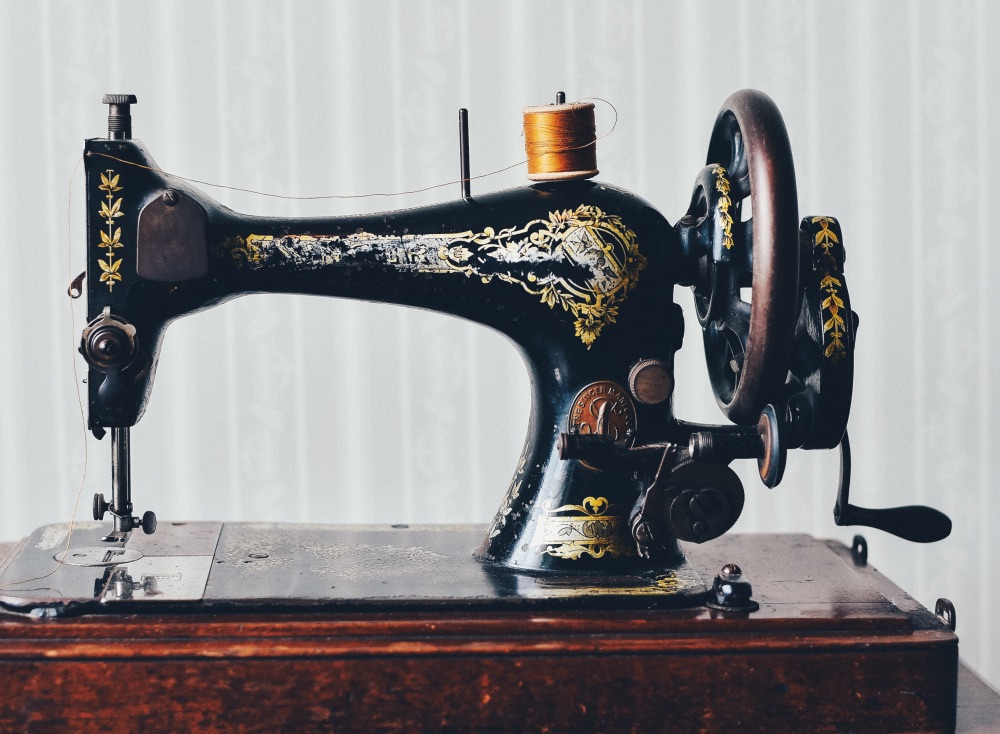
The Power Of Doing It Yourself

Mrs. April Jaure
A few months after my college graduation, I gave birth to my first child. Like a steaming cup of coffee, the theoretical world I was used to was both invigorating and cozy. Shortly before my last finals week, a test revealed the presence of a new life growing inside me and motherhood swiftly thrust me into an entirely foreign way of being. Without prompting from me, my body began forcefully reacting to smells and swelling at my midsection. Months later, as soon as my newborn daughter sounded her first cry, motherhood promulgated her crash course in practical living. My husband and I made very little money in the early years of our marriage, and the simple necessity of making our money stretch as far as it could meant that I would endeavor to learn some previously unknown (to me) domestic, do-it-yourself skills. It felt like a movie plot in which a skyrise-dwelling New Yorker decides on a whim to leave the city and buy a ranch. I would leave behind mornings of analyzing “The Red Wheelbarrow” over coffee with other English majors, to embrace some more practical, down-to-earth skills, like figuring out how to not burn dinner and how to keep my baby alive.
I hadn’t been raised to think of homemaking as unfulfilling, but I admit it was an attitude that I somehow absorbed. Childless April would have never imagined homemaking in her future. But, I was surprised at the intensity of the love I felt for my daughter and I hadn’t anticipated how painful it would be to leave her to go to work daily. So a couple of years (and another daughter) later, just as soon as we could squeeze by on one income, I became a stay-at-home mom. We would have to live simply, to be sure, but I wouldn’t have to leave my young children every day, and we would have more time as a family, which was a value in and of itself. I would cook, bake, and sew clothes to help us get by and life would be perfect. The only problem was that I didn’t have much experience in cooking, or baking, and my one foray in sewing had resulted in an unwearable shirt. But now I had a family to take care of, so I jumped into this new adventure with motivation and tenacity. I watched internet tutorials and read DIY blogs. I learned how to make my own eco-friendly (and budget-friendly) laundry soap. I patched jeans and sheets. For Christmas and birthdays, I spent hours producing homemade gifts. I sewed pillows and aprons, crafted hand-bound journals, wrapped beeswax candles, and baked loaves of chocolate-chip banana bread. Rather than the mundane drudgery that I had expected, learning to create so many things with my own two hands cultivated something deep inside me, and a developing satisfaction began to sprout.
As I worked on creating something, if I became lost in thought and wasn’t paying attention to the task at hand (a reality that happened more than I care to admit in those days), predictably my work wouldn’t turn out well. But such attention to the present moment was a skill I had to learn, and eventually I didn’t need to rip out seams and redo them so often, and, to my family’s relief, my bread got much more palatable. Like the literal stretching motherhood required of me, it also exacted a figurative but real stretching as I grew to be attentive to the here and now.

Like the literal stretching motherhood required of me, it also exacted a figurative but real stretching as I grew to be attentive to the here and now.
Some people view the human person exclusively as his or her thoughts. As Descartes says, “I think therefore I am.” But I see the human person as an embodied spirit, that is both body and soul — intimately connected, mixed up, and joined together. Before learning to create tangible goods with my hands, I was ignoring a vital part of who I am: my body. I ate mostly quick and easy food to keep myself going and occasionally I slept, but no matter what I was doing, my attention was always someplace else rather than on what was right in front of me. When I was able to create something for the benefit of people I love, it seemed like a neglected, yet vital seed within me was finally germinating and rising from its long dormition.
We are at a unique time in human history when we can live our lives largely separated from the physical realities around us. We move from our perfectly climate-controlled houses, to our climate-controlled cars, to our climate-controlled offices. We don’t have to gather, grow, or hunt food. Whatever we happen to need we simply order online. Twenty-four hours later it arrives at our doorstep — complete, finished, and ready for use. For many people in our so-called ‘information economy’, work consists of producing non-tangible goods or services. Collectively, these modern realities can condition our attention toward concepts of little benefit to our lives rather than toward the quotidian moments that make up the bulk of our lived experiences. We spend too much time on things that don’t actually contribute to making our lives rich and meaningful.
As someone who had based her identity in receiving academic accolades, one wouldn’t think that I would feel much satisfaction in learning to bake a loaf of bread or crochet a dishcloth. But figuring out how to accomplish these essential tasks made me feel capable and powerful in a way I hadn’t experienced before. Maybe none of this seems that exciting from the outside, but the sense of accomplishment and empowerment I felt was the same as if my life really was following the New Yorker-turned-Wyoming-rancher movie arc where, just as a powerful thunderstorm knocks out the phone line, the newbie rancher realizes that a heifer is in labor and she’s going to have to assist in the birth solo. After a tense night, as the first photons of the morning begin trickling into the barn, the wet and muddy rancher witnesses the birth of a healthy calf. In my reality, learning to craft these simple, but crucial items taught me to be attuned to the present moment, which is to say that it taught me to be present to my own life. I had been so accustomed to living life in my head, I’m sad to say that if it weren’t for motherhood and the necessity of acquiring some practical skills, I think I could have lived my whole life without being truly present for any of it.
Though we may be tempted to work more in order to achieve our goals, it would be worth it to consider the flourishing that could happen if, rather than working more, we worked differently. Perhaps we need a return to our bodies — to reverently care for them with the nourishing food we make ourselves, or even grow ourselves. Maybe we need to learn how to build or sew, to quilt, bake, or plant. Maybe we can learn to tinker, make mistakes, and try again and figure it out. This way of living takes time, to be sure, but perhaps it is that vital, missing core that has been lying fallow within us for far too long. ![]()

